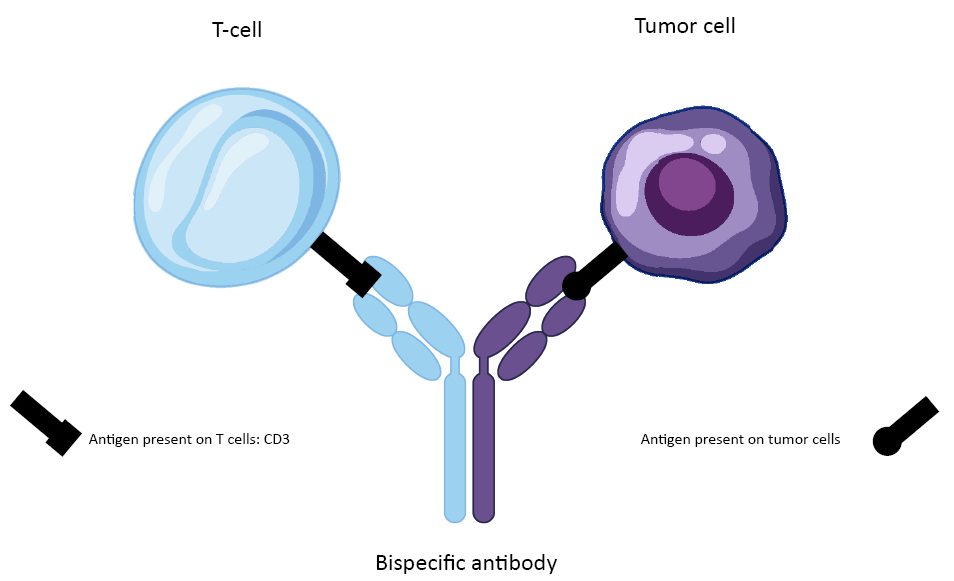Last June, Professors Philippe Moreau and Cyrille Touzeau, both haematologists and researchers at SIRIC ILIAD, published a scientific article in Blood, THE specialist haematology journal.
Every year, nearly 5,000 people are diagnosed with multiple myeloma in France. This little-known disease of the bone marrow is caused by the abnormal proliferation of a type of white blood cell: plasma cells. Despite the development of new treatments, some patients relapse or do not respond optimally to treatment. For these patients, the development of new therapeutic strategies is essential.
Bispecific antibodies: a new approach to the treatment of multiple myeloma
Among the most promising therapeutic strategies, new immunotherapy1 approaches based on bispecific antibodies2 are being developed. These antibodies are called “Bi” specific, for their ability to recognise two different targets, also known as antigens3.
The first target is a molecule present on the surface of specific immune cells: T cells, which are able to destroy tumour cells. The second target is a molecule present on the tumour cells. By bringing tumour cells and immune cells together, these bispecific antibodies help the immune system to recognise and destroy tumours.

Immunotherapy1: Cancer treatment by stimulating the immune system. Immunotherapy involves stimulating specific immune cells to make them more effective or to make tumour cells more recognisable to the immune system.
Antibodie2: An antibody recognises a foreign antigen in order to neutralise it.
Antigen3: An antigen is a natural or synthetic molecule that can trigger an immune response, when recognised by antibodies or immune system cells.
Promising initial clinical trials…
To recognise the tumor cell, several antigens can be used, the main criterion being minimal toxicity. In other words, the antigen must be present at all times on the tumour cell, but very little on non-tumour cells.
There are many clinical trials conducted to evaluate bispecific antibodies using different antigens. Professors Philippe Moreau, haematologist and director of the SIRIC ILIAD, and Cyrille Touzeau, also a haematologist at the Nantes University Hospital, analyse and summarise these clinical data in a scientific article published in June 2022 in the Blood journal.
… that could lead to treatments for multiple myeloma in the future
In this article, the two researchers have compiled information on toxicity, efficacy and resistance to treatment. In the light of these initial results, bispecific antibodies appear promising for treating multiple myeloma. The use of this type of antibody, offering a rapid therapeutic response, could be crucial for rapidly progressing myeloma. If these results are confirmed by further studies, bispecific antibodies could become a standard treatment in the future, combined with other therapies in the first lines of treatment to increase their effectiveness.

